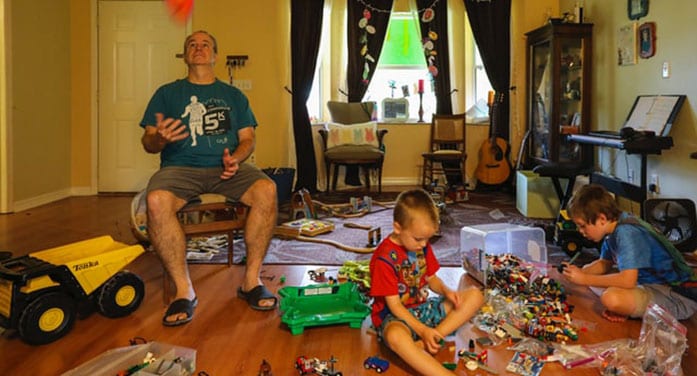While the COVID-19 pandemic continues to challenge Canada’s health-care system and economy, a University of Alberta economist has been awarded $1.25 million by the federal government to start planning for the next public health crisis.
Christopher McCabe, professor in the Faculty of Medicine & Dentistry and CEO of the Institute of Health Economics, will lead a cross-Canada team of economists and mathematical modellers in creating a model to predict and track the impact of infectious diseases and policy responses on all sectors of society.
The funding for the project, dubbed the One Society Network, was recently announced by the Natural Sciences and Engineering Research Council of Canada and the Public Health Agency of Canada.
“One Society is a recognition that policy decisions in the health sector impact upon all sectors of the economy and, equally, policies pursued in any other sector impact what happens in health care,” McCabe said. “The idea is that we look at it across society to understand what the total effect is going to be.”
The network brings together nearly 20 economists with expertise in health, the environment, education, agriculture, transportation, marginalized communities and macroeconomics, from eight universities across the country, including Vic Adamowicz, professor and vice-dean with the Faculty of Agricultural, Life & Environmental Sciences.
They will work together to quantify the potential impacts of various pandemic responses so that decision-makers can make more informed choices and explain the trade-offs to the people affected.
“For example, restrictions on movement and gatherings impact transportation, agriculture and education, and those impacts then feed back into the effectiveness of the measures,” McCabe said. “If people can’t afford to quarantine because they can’t take a week off work, or employers can’t afford to allow their staff to quarantine because their business will go bankrupt, the quarantine won’t work.”
While public health modelling has been robust during COVID-19, McCabe said decision-makers need to consider a similar level and quality of data about other sectors to understand their interdependence.
“There has been a misunderstanding that there was a trade-off between the economy and health, but in fact, that trade-off was only in the short term,” McCabe said. “Once you recognize that health feeds into the economy, then you realize that if the health-care system is going down, the economy will be taken down.”
“You had to get the threat to health under control in order to allow the economy to function.”
The network will predict potential impacts of policies such as lockdowns or furlough subsidies by sector and type of worker. The researchers will also identify gaps in data for marginalized communities such as Indigenous groups or new immigrants, a concern raised by McCabe and others in a recent report from the Royal Society of Canada.
“Each sector has been working on this sort of policy modelling for a long time,” McCabe said. “What’s new is making the linkages so we can provide comprehensive, high-quality information from trusted sources promptly in times of emergency.”
While this is a two-year project, McCabe hopes to have early results from the first integrated models within a year.
“The only time that we make comparable levels of expenditure and have comparable social interventions is in times of war,” he said. “Ministries of defence practise for war so that when it happens, they’re prepared. We need to periodically ‘war game’ pandemics and policy responses for the same reason.”
McCabe concluded that the One Society approach would be helpful whether the next major societal challenge is a pandemic or not.
“Any circumstance where the government is thinking we need to restrict individual freedoms within our society to get a handle on the crisis, then the question about what are the dynamic effects of those restrictions on other aspects of the economy in society will be a legitimate question.”
| By Gillian Rutherford for Troy Media
This article was submitted by the University of Alberta’s Folio online magazine. Folio is a Troy Media Editorial Content Provider Partner.
The views, opinions and positions expressed by columnists and contributors are the authors’ alone. They do not inherently or expressly reflect the views, opinions and/or positions of our publication.



